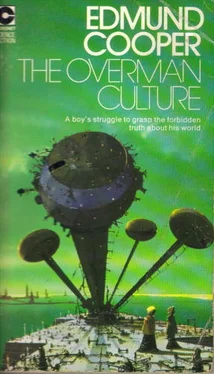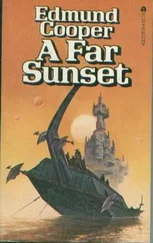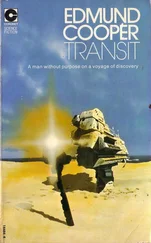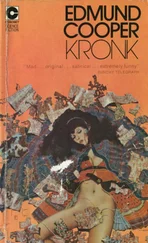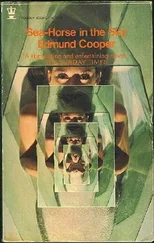Edmund Cooper - The Overman Culture
Здесь есть возможность читать онлайн «Edmund Cooper - The Overman Culture» весь текст электронной книги совершенно бесплатно (целиком полную версию без сокращений). В некоторых случаях можно слушать аудио, скачать через торрент в формате fb2 и присутствует краткое содержание. Город: London, Год выпуска: 1977, ISBN: 1977, Издательство: Coronet Books, Жанр: Фантастика и фэнтези, на английском языке. Описание произведения, (предисловие) а так же отзывы посетителей доступны на портале библиотеки ЛибКат.
- Название:The Overman Culture
- Автор:
- Издательство:Coronet Books
- Жанр:
- Год:1977
- Город:London
- ISBN:978-034017860
- Рейтинг книги:5 / 5. Голосов: 1
-
Избранное:Добавить в избранное
- Отзывы:
-
Ваша оценка:
- 100
- 1
- 2
- 3
- 4
- 5
The Overman Culture: краткое содержание, описание и аннотация
Предлагаем к чтению аннотацию, описание, краткое содержание или предисловие (зависит от того, что написал сам автор книги «The Overman Culture»). Если вы не нашли необходимую информацию о книге — напишите в комментариях, мы постараемся отыскать её.
The Overman Culture — читать онлайн бесплатно полную книгу (весь текст) целиком
Ниже представлен текст книги, разбитый по страницам. Система сохранения места последней прочитанной страницы, позволяет с удобством читать онлайн бесплатно книгу «The Overman Culture», без необходимости каждый раз заново искать на чём Вы остановились. Поставьте закладку, и сможете в любой момент перейти на страницу, на которой закончили чтение.
Интервал:
Закладка:
“Yes,” said Jane, standing up. “It is a good idea to fall asleep thinking of nice things…. If you see Ernest before I do tomorrow, will you do something for me?”
“Of course.”
“Will you kiss him for me, and tell him that I shall love him all my life.”
Emily looked at her curiously. “Surely you would rather tell him yourself.”
Jane gave a little laugh. “I don’t know. Perhaps I’m too shy. Promise you will do it, Emily.”
“All right. I promise.”
“Thank you.” Jane kissed her on the cheek, and then on the lips. “The last one,” she said lightly, “is the one for Ernest.” She looked at the stretch of water and sighed. “Wouldn’t it be nice if we could just be silly, empty-headed ducks, dabbling in calm water forever?”
Then she turned and walked quickly away.
Late that evening, Jane Austen took a bath. She plugged the electric radiator into the wall socket, then balanced the radiator on the end of her bath with a loop of cord hanging over. She ran the water, took off her clothes and stepped into the bath. Then she lay back, closed her eyes and thought of lovely things. After a time, still with her eyes closed, she lifted one foot out of the water and felt for the loop of cord. Then she hooked her toes behind it and jerked suddenly. The radiator fell into the water.
28
Michael said: “I didn’t really expect you to be here tonight…. I only came for the walk. I couldn’t stand watching those drybones pretending to be people…. How are you? How are you feeling, Ernest?”
“Don’t worry about me,” said Ernest somberly. “The weeping is done inside. Maybe there will be a time for real tears. But not now.”
It was dark, and they were standing on Waterloo Bridge; and the Thames murmured softly beneath them.
“I wish—I wish she had told us,” said Michael. “I wish she had told Emily.”
Ernest gave a faint smile. “Maybe she had been telling us for some time—only we didn’t understand the language. And if we had understood, would we have had the right to stop her?”
“Not to stop her, perhaps, but to persuade her.”
Ernest shook his head. “Pressure. Emotional blackmail. Not on…. Jane was right to say nothing. To preserve the liberty of the individual.”
“Ernest”—Michael put an arm on his shoulder—“there are times when you make me feel very small.”
“There are times when I make myself feel very small. This is one…. Well, Michael, the pressure mounts, the tension mounts, the tragedies begin. We know too much, and we know too little. We know of a river that is not a river, of roads that return to their starting points, and of a war that no longer exists. We know that Michael Faraday and Ernest Rutherford were scientists, that Horatio Nelson was a sea captain, that Emily Bronte and Jane Austen wrote novels. We know that drybones have detachable heads and that lizards disport themselves by the sea outside London. We know that we who are called Michael Faraday, Ernest Rutherford and Emily Bronte are alive, because we feel pain. We do not know how we came to be alive or why we remain alive. We do not know if this fake city has anything at all to do with that greater, imaginary world in which we have the effrontery to believe…. So, shall we be cowards and do nothing, or shall we be cowards and do something? You are still the leader of our diminishing band. It is still you who must make the decisions.”
Michael let out a great sigh. “Ernest, don’t you think I have already made a mess of things?”
“Things were a mess. You, at least, have made us try to perceive the mess as a pattern. Whether we succeed or not, the effort is worthwhile.”
“I don’t like that telling phrase: diminishing band. Now, so far as we know, there are only three of us who know about the land outside London. But it is just possible that some of the other fragiles—people like Charles Darwin or Bertrand Russell or James Watt —might have been doing some independent exploration. If so, they might know things that we do not.”
“I do not recall that Darwin, Russell or Watt were among those who wished to learn to read,” observed Ernest dryly.
“No, but that does not preclude them from being curious in other ways…. However, whether they have used their heads or not is irrelevant. What does matter is that there are only three of us now. Suppose some other disasters happen—one or two could be left with the knowledge we have gained. Perhaps only Emily. What a dreadful burden that would be.”
“Then what do you propose?”
“An end to secrecy, and end to deception. An end to the double-thinking that compels us to behave with apparent normality in this grotesquely abnormal situation.”
“You may also be proposing an end to living.”
“That is the risk, but it is a risk we have to take…. Ernest, let us suppose the existence of some mad scientist—just as in one of those terrible children’s films they expect us to watch. Let us endow this scientist with almost unlimited means, so that, for the purpose of his work, he is able to create this illusory London—and even, perhaps, able to create us.”
“Now we are really taking off into the realms of fancy,” commented Ernest dryly.
“We never left them,” retorted Michael. “What I am getting at is this: So long as we fragiles are unconscious or compliant victims, the experiment—or whatever it is—can proceed. But what happens if all the guinea pigs know they are being used? What happens if they all begin to investigate the aims of the scientist?”
“The experiment is terminated,” said Ernest. “The guinea pigs are destroyed…. Or set free…. But we know nothing, Michael. We have only acquired a collection of mysteries. For all we know, we may not even be on Earth.”
Michael was silent for a time. Then he said: “I am convinced of one thing. Behind the apparent unreason there is reason.” He held out his arms in a gesture that seemed to encompass the whole of London. “It is just too much to believe that all this—ourselves included—was created for some idiotic caprice. There must be a purpose…. Do you remember that day, long ago—it’s hard to imagine how long ago—when we were in play school and Miss Shelley told us about the Overman legend?”
“I do.” Ernest was excited. “The odd thing is, nobody has mentioned it since.”
“Once,” said Michael. “Once Father mentioned it. After we had been to see Gone with the Wind. There was a quarrel because I had been asking too many questions. In the end, he told me to ask myself if any of the Overman legend could be true…. I remember something else, too. Suddenly, I remember something else. That night, after Miss Shelley had told us the story, Father asked me what I thought of it. But I hadn’t mentioned anything about it. So how could he have known?”
“Therefore he knew beforehand.”
“Therefore,” said Michael, “it is probably significant. How about someone or something called Overman for the mad scientist? For some reason I can’t understand, the end of the story comes into my mind. Overman says: ‘The problem is this. Shall men control machines or shall machines control men?’ Then there is something about going to sleep for ten thousand years.”
“Fantasies,” sighed Ernest. “Fantasies. Eventually we shall go mad.”
“No, Ernest. We may be destroyed—but destruction is better than madness. Tomorrow is the last time we shall ever attend that idiotic school. Tomorrow is the last time we shall ever do anything the drybones want us to do.”
Ernest gave a bitter laugh. “The revolt of the guinea pigs. I like it. But is it to be just two guinea pigs—or three?”
Читать дальшеИнтервал:
Закладка:
Похожие книги на «The Overman Culture»
Представляем Вашему вниманию похожие книги на «The Overman Culture» списком для выбора. Мы отобрали схожую по названию и смыслу литературу в надежде предоставить читателям больше вариантов отыскать новые, интересные, ещё непрочитанные произведения.
Обсуждение, отзывы о книге «The Overman Culture» и просто собственные мнения читателей. Оставьте ваши комментарии, напишите, что Вы думаете о произведении, его смысле или главных героях. Укажите что конкретно понравилось, а что нет, и почему Вы так считаете.
